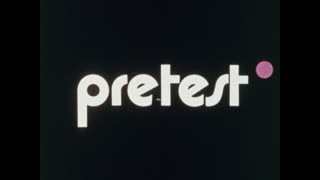This eight minute film provides an overview or introduction to films in “the Social Seminar” series. This series of educational films was created for adults and produced by the Extension Media Center of the University of California at Los Angeles in 1971. (The original full name of the series was “The Social Seminar: Education, Drugs, and Society.”) The series was executive produced by Gary Schlosser and studies the issue of substance abuse. Each film featured a cinema -style voiceover and a narration of a specific person or family as they work through personal, interpersonal and societal change. Through these narratives’ viewers understand potential causes behind substance abuse as well as the shortcomings of the public education program on tackling the issues. It emphasizes substance abuse is a community wide issue calling for support from social institutions and community members. Teachers play a crucial role in prevention by understanding the cultural pressures students were under as well as act as guides creating relevant school environments. Information was compiled by the National Institute of Mental Health and the US Office of Education. The films also featured a role-playing simulation game “Drugs: A Community at the Crossroads” aimed at helping fostering strong bonds of respect and trust among parents, teachers and students. Materials for the program were pre-tested on diverse groups and the work was supported by the White House as part of the Drug Abuse Prevention Program. The films were designed to deliver accurate information in order to dispel myths about substance abuse leaving viewers with the understanding the issue is complex and without simple solutions.
(00:00) Film opens with a typewriter pumping out the words the National Institute of Mental Health in Cooperation with the US office of Education (:11). The title screen follows (:39). The opening section describes substance abuse as a community-wide issue (:55). Teachers are called out as direct influencers who must maintain close connection with their students (1:12). They must be aware of factors which might lead a student into substance abuse (1:35). A headline discusses the publication of a new “Drug Abuse Primer” (1:52). Educators must maintain knowledge on the subject and be aware of their own mindset towards substance abuse (2:03). A section explains young filmmakers took on the task of answering questions related to the problem of drug use (2:50). Close shots show the script (3:19) and cover of the book “What Will Happen If” (3:24). This book educated readers on types of drugs and their effects. How to use the core and 18-part film print series is explained (3:45). A filmmaker of the program sits behind reels of film (3:51). A sign points to the Extension Media Center of UCLA located on the second floor (3:54). Footage shows group discussion sessions (4:24). The films showed potential causes behind substance abuse as well as legal and treatment issues (4:34). Plotlines of “Changing” (4:49) and “Drug Talk” (5:02) are explored. A student admits to intentional truancy (5:22) in “Brain at 17”. Shortcomings of the public education system are called out in this feature. Another film delivers a personal look at the connection between teacher and student (5:40). Images of the 18-part series follow (6:01). Films included a general curriculum guide and role-playing simulation game (6:00). A section explains the involvement of the White House Special Action Office on Drug Abuse Prevention Program (7:00). The series delivered an accurate portrayal of life for youth growing up in the 1970’s (7:20) and questioned the strength of drug education programs in public schools.
Motion picture films don’t last forever; many have already been lost or destroyed. For almost two decades, we’ve worked to collect, scan and preserve the world as it was captured on 35mm, 16mm and 8mm movies — including home movies, industrial films, and other non-fiction. If you have endangered films you’d like to have scanned, or wish to donate celluloid to Periscope Film so that we can share them with the world, we’d love to hear from you. Contact us via the weblink below.
This film is part of the Periscope Film LLC archive, one of the largest historic military, transportation, and aviation stock footage collections in the USA. Entirely film backed, this material is available for licensing in 24p HD, 2k and 4k. For more information visit http://www.PeriscopeFilm.com


